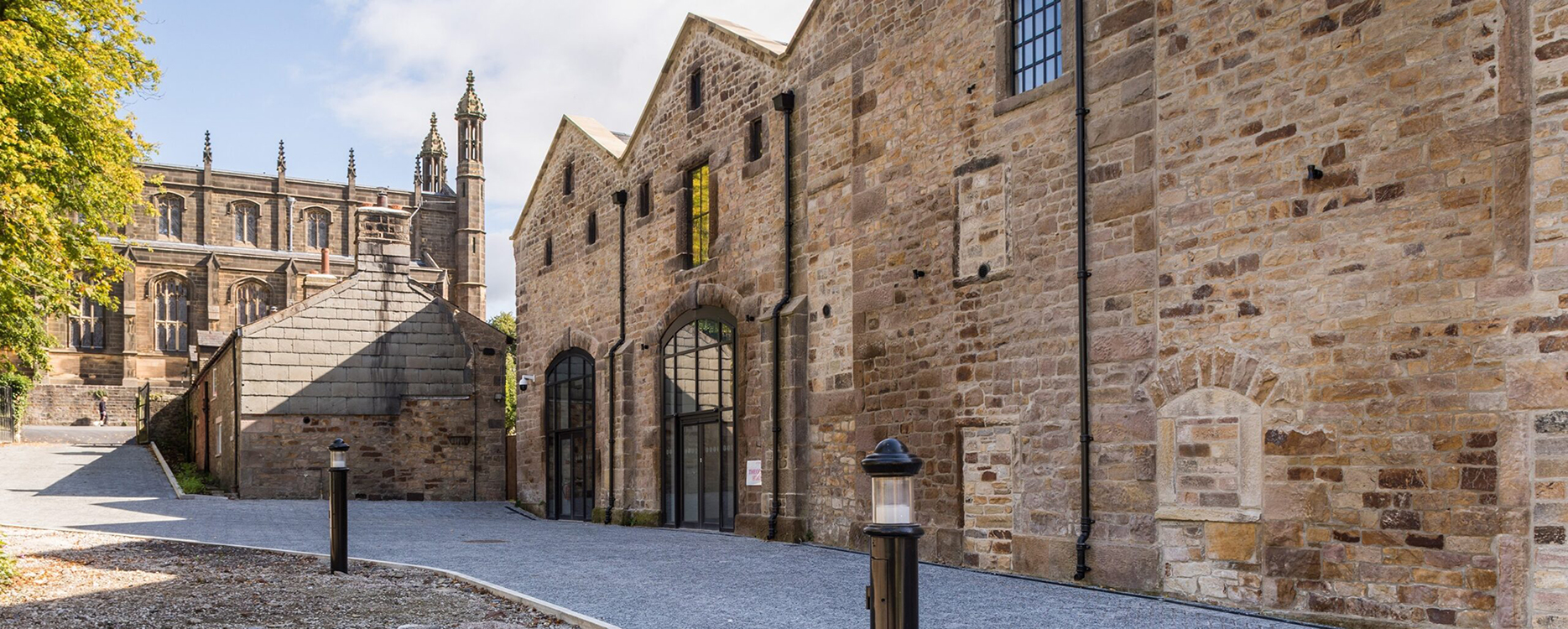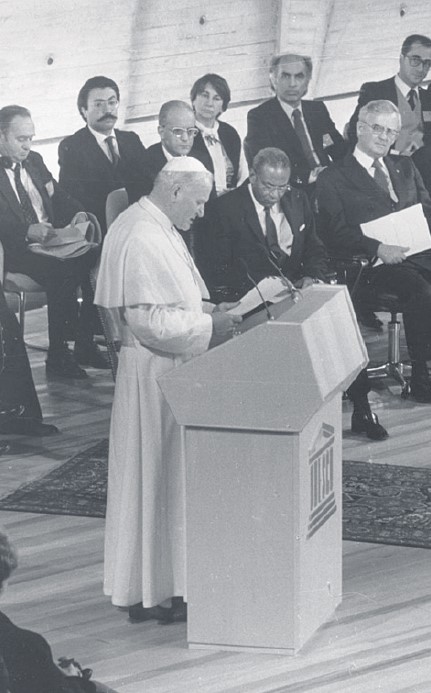Friday 5th July 2019
The CHC @ The Catholic Universe
Culture is the dimension in which our precious faith is brought to life
Stefan Kaminski

The term ‘heritage centre’ carries with it a certain risk: that of associating it with old, even if valuable, artefacts, which do not necessarily have particular relevance to today beyond informing us of a bygone era.
Heritage, however, goes well beyond the material realm: in fact, the dictionary definition speaks of “cultural traditions that have been passed down from previous generations”. Of course, such cultural traditions find a certain embodiment and expression in works and artefacts; but to fixate purely on these as the sum total of our ‘heritage’ is to do a disservice to our cultural patrimony. When we do so, the concept of culture itself also becomes impoverished as a result.
When Pope St John Paul II addressed UNESCO in 1980 barely two years after his election, he emphatically reminded the organisation that the diverse traditions and eras of spiritual heritage and culture all have a common ground in our common human nature. Different cultures find their meeting place in the human being because culture “is a characteristic of human life as such”, he told the assembly. He went on to say that, “Human life is culture” because the cultural dimension is what distinguishes human life over and above any other animal life. Culture is therefore the societal expression of the spiritual and rational dimension of the human being: indeed, “culture is the specific way of man’s existing and being”.
This fact John Paul II traces back to the first accounts of humanity in the first two chapters of Genesis. There, the Lord’s entrustment of the earth to the dominion of mankind and His command to “cultivate the earth” is intrinsically linked to man’s (in the non-gender specific sense) creation in the image of God. From the relatively simple beginning of cultivating the soil, man’s God-given intellect enables the creation and nurture of a tradition of artistic creativity and scientific enquiry, forming the cultural dimension of the life of human society.

If John Paul II insisted on the unity of faith and reason, he similarly often repeated the mantra that ‘faith must become culture’. It could be said in fact, that culture is the primary dimension in which the unity of faith and reason should become visible. The fruits of our intellect – our work, our understanding of the world, our creative output – should be shaped by our faith, if indeed our faith is genuinely integrated as part of our lives. Such a culture will naturally be authentically human because it seeks what is good, beautiful and true: ultimately the Creator.
This is especially important in the home, the school and the parish, where faith is first handed on. If a good catechesis is not to find itself accused of hypocrisy, it needs be complemented by the promotion and nourishment of a culture that embodies the same principles. This requires Catholics who not only understand, believe and practice the tenets of their faith, but who have both the courage to challenge what does not lead to God, as well as the ability to speak their faith through what is true, good and beautiful in our culture.
On the other hand, it is worth remembering the educative power of culture, regardless of its merits. The “primacy and essential task of culture… is education”, John Paul II reminded UNESCO. To disregard and dismiss as a fad those things in our culture that lead away from the truth and are objectively harmful is to lead astray our children. To leave at a distance that which is good and true in our culture is to deprive the next generation.
For this reason, part of the task that the Christian Heritage Centre has set itself is to promote an appreciation and understanding of the Christian influences in our cultural tradition. This heritage is not one that belongs to the history books or to a dim-and-distant past: it belongs to every modern-day Christian, since “Jesus Christ is the same yesterday, today and for ever” (Heb 13:8). Every Christian-informed cultural work is a potential catechetical tool, just as the highest creative achievements of the human spirit, be they Bach, Michelangelo, Shakespeare or Rembrandt, remain valid as exemplars of artistic and technical genius and as inspiration for the rest of time.
The Christian Heritage Centre’s first event is thus a study weekend on faith and literature, exploring two key themes in English writings: our place within the world and our own vision for ourselves. The Christian tradition has much to offer on both fronts: from the fundamental goodness of creation to virtue-based character formation, Chesterton, Austen, Green and Tolkien (amongst others) have all incorporated Christian wisdom into their writings.
The weekend will offer both lectures and guided group discussions, within a framework of prayer, to enable participants to have a deeper understanding of the Christian thinking behind some of the best-loved pieces in English literature. Alongside a broad selection of English texts, there will also be a certain focus on J.R.R. Tolkien’s works. Whilst it is offered with a wide audience in mind, the weekend will be of particular interest to parents and teachers concerned with the moral and cultural formation of their children and pupils, as well as to students of the humanities. Not to mention, of course, anyone simply wanting a weekend perusing literary classics in a beautiful setting!
Stefan Kaminski is the Director of The Christian Heritage Centre
